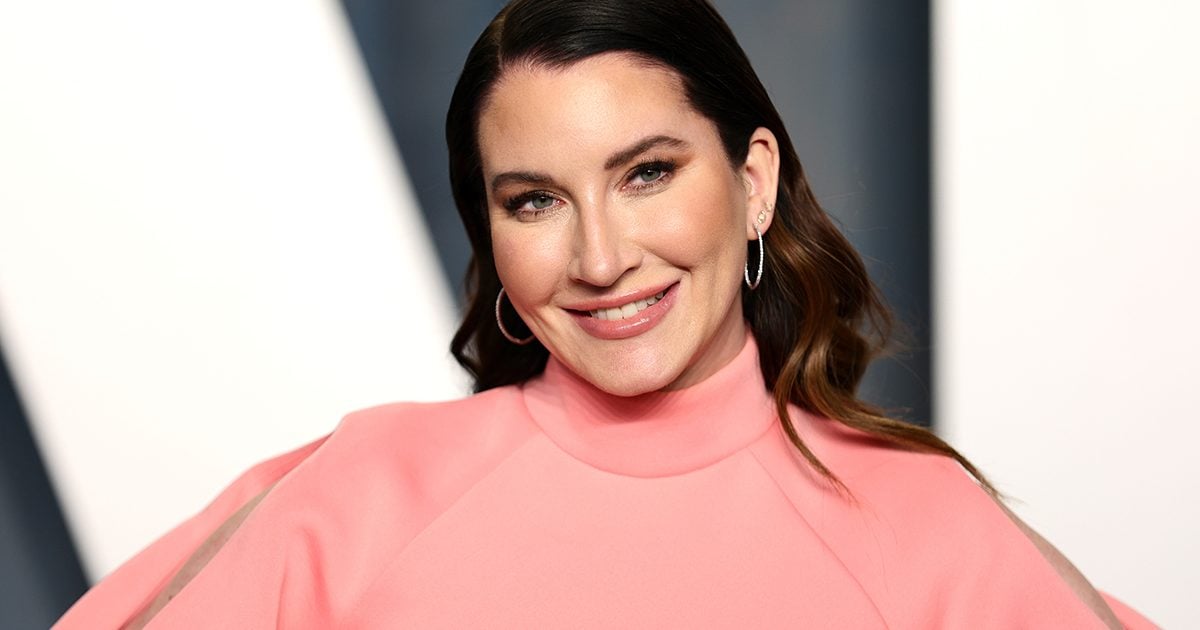'Dateline' Host Wishes Netflix Star & Professional Organizer Clea Shearer Well Amid Breast Cancer Battle
- Netflix star Clea Shearer had her spirits lifted amid her breast cancer battle with a personal message from Dateline NBC host Keith Morrison.
- Two weeks ago, Clea announced via Instagram that she had been diagnosed with breast cancer and that she would be undergoing a double mastectomy.
- Clea was originally told her cancer was stage 1, but during her nine-hour surgery on Friday, April 8, doctors found cancer in one of her lymph nodes, which elevated the cancer to stage 2.
"I am BESIDE MYSELF," Clea, the 40-year-old professional organizer and co-founder of The Home Edit, posted to Instagram on Wednesday afternoon alongside a video of Morrison. "#1 fan of Keith Morrison and @datelinenbc!!!"
Read MoreView this post on Instagram
Clea Shearer lives in Nashville, Tenn., with her husband, John, and their two children, Stella, 11, and Sutton, 7. She co-founded The Home Edit with her best friend and business partner Joanna Teplin, 42. Their business became such a success that Netflix opted to make a television show of it. Netflix released the second season of Get Organized with the Home Edit on April 1.
Clea Shearer’s Breast Cancer Diagnosis
Two weeks ago, Clea Shearer announced that she had been diagnosed with breast cancer and that she would be undergoing a double mastectomy.
"I found a lump myself (in) the last week of February," Clea posted to Instagram on April 7. "I had been trying to make an appt with my OB(GYN) for several months, and even when I told them I found a lump, they couldn't accommodate me. I had to request a mammogram from my general doctor, which led to an ultrasound, and then an emergency triple biopsy."
View this post on Instagram
Clea, who's been sharing regular updates about her health on Instagram, was originally told her cancer was stage 1, but during the nine-hour surgery on Friday, April 8, doctors found cancer in one of her lymph nodes, which elevated the cancer to stage 2. The type of breast cancer Clea was diagnosed with hasn’t been been made public yet, but she said her cancer is "aggressive and fast-moving," however, "I caught it early."
She had two tumors, one measuring 2 centimeter in size and the other 3 centimeters (she was originally told each tumor was 1 centimeter). The tumors were sent to a lab in order to determine in Clea will need chemotherapy or radiation, and as stated earlier, it turns out she’ll need both.
According to her Instagram, Clea underwent a second breast cancer surgery last week because “some of my skin tissue is just NOT having it…” She’s currently recovering at home.
What to Expect Post-Mastectomy Surgery
Most women with breast cancer, like Clea Shearer, will have surgery at some point in their treatment. Depending on how far your cancer has spread and your personal preferences, you and your doctor may decide to:
- Remove just the cancer and an area of healthy tissue around it (lumpectomy)
- Remove one breast (mastectomy)
- Remove both breasts (double mastectomy)
Removing your breasts can have a dramatic effect on your self-esteem, which is why some women who opt for a mastectomy then choose breast reconstruction surgery. It’s unclear if Clea will opt for reconstruction surgery after her double mastectomy. This is a highly personal choice, and there’s no "right" answer as to whether or not to reconstruct.
When Should You Consider a Mastectomy?
According to the American Cancer Society, bleeding and infection at the surgery site are possible with all operations. However, the side effects of a mastectomy can depend on the type: either a single (removing one breast) or double (removing both breasts).
Those side effects can include:
- Pain or tenderness at the surgery site
- Swelling at the surgery site
- Buildup of blood in the wound (hematoma)
- Buildup of clear fluid in the wound (seroma)
- Limited arm or shoulder movement
- Numbness in the chest or upper arm
- Neuropathic (nerve) pain (sometimes described as burning or shooting pain) in the chest wall, armpit and/or arm that doesn't go away over time. It is also called post-mastectomy pain syndrome, or PMPS.
- If axillary lymph nodes are also removed, other side effects such as lymphedema may occur.
Understanding and Treating Lymphedema
Learn more about SurvivorNet's rigorous medical review process.

